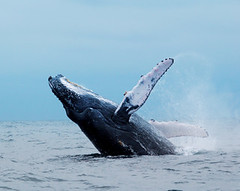 Have you ever heard of Humphrey the Humpback Whale? Before our campers (and many of our staff) were born, Humphrey’s odyssey held our nation’s attention for many, many days.
Have you ever heard of Humphrey the Humpback Whale? Before our campers (and many of our staff) were born, Humphrey’s odyssey held our nation’s attention for many, many days.
Humphrey, as his name suggests, is a humpback whale. Getting turned around one day chasing plankton or following a misguided hunch, Humphrey found himself in San Francisco Bay. A few days later, he was in the Sacramento River. If you are trying to get to Sacramento, it’s a great plan. Just not it if you are whale.
Rescuers and researchers tried everything they could think of to stop Humphrey’s progress up the river. He escaped traps, ignored the pleading, and continued his meander up river all the while showing signs of physical distress and confusion. Thankfully, one researcher had a great idea.
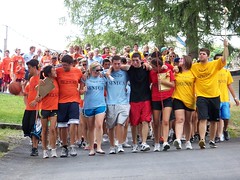 With the help of the US Navy and a local boat owner, Dr. Bernie Krause started sending out whale calls through the water. (If you’ve not heard them, they are really interesting!) Within no time at all, Humphrey appeared. The astounded rescuers had called to Humphrey and he came to them!
With the help of the US Navy and a local boat owner, Dr. Bernie Krause started sending out whale calls through the water. (If you’ve not heard them, they are really interesting!) Within no time at all, Humphrey appeared. The astounded rescuers had called to Humphrey and he came to them!
Taking the boat with its whale calls down river, Dr. Krause and his team led Humphrey out to the San Francisco Bay and then to the Pacific. It was a great rescue that captivated the nation that actually advanced science. We found out it takes a whale to speak to another whale.
That’s a lesson camp teaches every day. In this age of video games and iPhones, PSP’s and tweets, we mustn’t forget one of our most basic requirements: It takes people to speak to other people.
Great camps surround children with great mentors and develop a community in which everyone is valued and cared for. At Weequahic, finding and training the best staff possible is, along with safety, our most important priority. The more interested, exciting, patient, and prepared a staff, the more likely it is for our campers to have an extraordinary experience. This, I might add, also provides the staff with an incredible experience as well!
If you know of someone interested in joining a community of people who want to provide an extraordinary experience for campers, please ask them to apply here. We’d be thrilled to speak with them!
Hat tip to Chuck Hodges (and Humphrey) for the story.
Cole Kelly, Camp Weequahic Director

 570-798-9831
570-798-9831
 What do camp counselors learn at camp that helps them later in life? The specific answers to that question are varied, but one thing remains constant—camp has a big impact on individual lives long after campers grow out of their camping and counselor years. Recently
What do camp counselors learn at camp that helps them later in life? The specific answers to that question are varied, but one thing remains constant—camp has a big impact on individual lives long after campers grow out of their camping and counselor years. Recently  One counselor puts it this way, “Many aspects of camp allowed counselors to forget life outside of camp and just live in the present focusing on how to facilitate fun in the moment. I don’t think you get to do that as frequently in other life experiences, or at least you are not encouraged to do it as frequently.” She goes on to state that these skills are important in any profession and that camp administrators also served as
One counselor puts it this way, “Many aspects of camp allowed counselors to forget life outside of camp and just live in the present focusing on how to facilitate fun in the moment. I don’t think you get to do that as frequently in other life experiences, or at least you are not encouraged to do it as frequently.” She goes on to state that these skills are important in any profession and that camp administrators also served as 

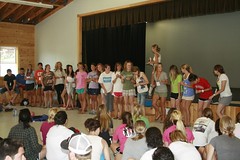

 According to American Camp Association
According to American Camp Association Smith says that summer camp provides a unique learning experience for college students since “a camp job offers real life experiences and a hands-on education that simply cannot be found in a classroom.” If you’re looking for a way to earn money and also develop and grow as a person, summer camp is a place where children and adults come together to form a unique community. It’s
Smith says that summer camp provides a unique learning experience for college students since “a camp job offers real life experiences and a hands-on education that simply cannot be found in a classroom.” If you’re looking for a way to earn money and also develop and grow as a person, summer camp is a place where children and adults come together to form a unique community. It’s  How would you describe the essential elements of a summer camp? Do the adventures of spending days with peers, learning new skills, trying new activities, bonfires and skits, great counselors—all the fun of the whole experience—first come to mind? These are definitely important elements of summer camp from a camper’s perspective, but there are a lot of other elements that have to be in place for a camp to be successful year after year. Have you ever wondered about what it takes to set the scene and create spaces where good times can take place?
How would you describe the essential elements of a summer camp? Do the adventures of spending days with peers, learning new skills, trying new activities, bonfires and skits, great counselors—all the fun of the whole experience—first come to mind? These are definitely important elements of summer camp from a camper’s perspective, but there are a lot of other elements that have to be in place for a camp to be successful year after year. Have you ever wondered about what it takes to set the scene and create spaces where good times can take place?

 It certainly is a good time to thinking about gratitude. Just following Thanksgiving, we just returned from our trip to the grandparent’s house, finished making our list of yearly ‘thankfuls’, and enjoyed spending some extra time with those most important to us. Thankfully, even the media gets into the action as well.
It certainly is a good time to thinking about gratitude. Just following Thanksgiving, we just returned from our trip to the grandparent’s house, finished making our list of yearly ‘thankfuls’, and enjoyed spending some extra time with those most important to us. Thankfully, even the media gets into the action as well.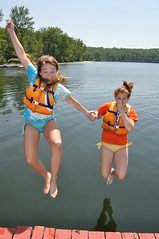 Of course, the
Of course, the 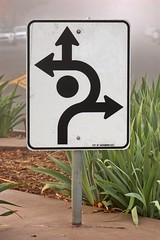 Starting this summer, Camp Weequahic is moving to an individual choice based program where campers can design and create their own fun summer experience. Prior to camp, campers and parents will complete an on-line program selection form where they will have the opportunity to list 8 to 10 of their favorite activities they want to enjoy throughout the summer. These choices are called “Excel” Periods. Once the Weequahic programming team receives this information, they will build a program especially for you! To round out each program day, each camper will then get to choose 2 ‘Explore” periods a day once they are at camp. The Explore periods are age- and developmentally appropriate activities. These “spontaneous” choices are activities a camper may like to try once or twice…instead of being “focused” on that program for their entire stay at camp. These daily choices can be anything in the Weequahic menu of activities and change daily such as climbing, play practice, guitar, baseball instruction, cooking and so on. Try one or try ’em all during these speical “Explore” periods! There are tons of daily activities to choose from.
Starting this summer, Camp Weequahic is moving to an individual choice based program where campers can design and create their own fun summer experience. Prior to camp, campers and parents will complete an on-line program selection form where they will have the opportunity to list 8 to 10 of their favorite activities they want to enjoy throughout the summer. These choices are called “Excel” Periods. Once the Weequahic programming team receives this information, they will build a program especially for you! To round out each program day, each camper will then get to choose 2 ‘Explore” periods a day once they are at camp. The Explore periods are age- and developmentally appropriate activities. These “spontaneous” choices are activities a camper may like to try once or twice…instead of being “focused” on that program for their entire stay at camp. These daily choices can be anything in the Weequahic menu of activities and change daily such as climbing, play practice, guitar, baseball instruction, cooking and so on. Try one or try ’em all during these speical “Explore” periods! There are tons of daily activities to choose from.
 The official end of summer has passed and kids all over the nation are back at school and I can easily imagine the hallways are still bursting over with stories of summer camp and all of its amazing experiences. Let me tell you about College Days! The fireworks over the lake on the last night! I so miss my camp friends…
The official end of summer has passed and kids all over the nation are back at school and I can easily imagine the hallways are still bursting over with stories of summer camp and all of its amazing experiences. Let me tell you about College Days! The fireworks over the lake on the last night! I so miss my camp friends…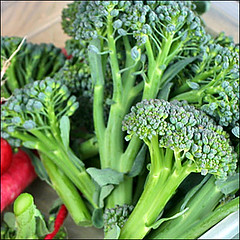




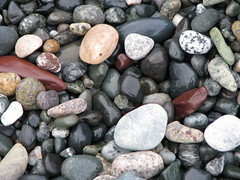 Louv discovered that
Louv discovered that